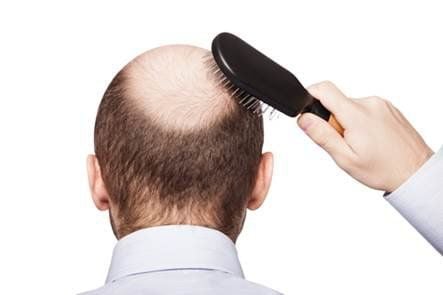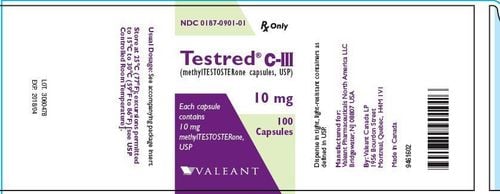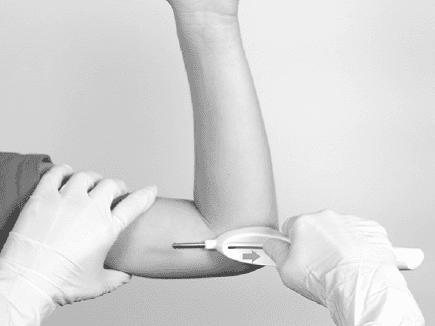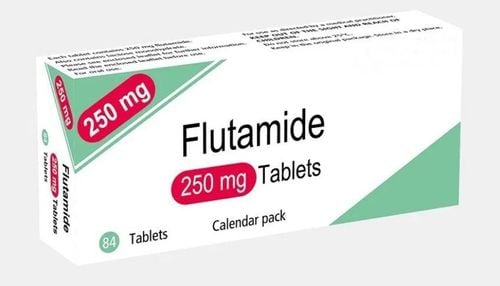This is an automatically translated article.
Dihydrotestosterone is a male sex hormone that plays an important role in the formation of male sex characteristics. The excess or lack of this hormone can cause a number of disorders in the body, in which, baldness is one of the common consequences.
1. What is the hormone Dihydrotestosterone (DHT)?
Dihydrotestosterone, abbreviated as DHT, is a male sex hormone that exists in the adrenal glands, hair follicles, testes, and prostate gland. Dihydrotestosterone hormone is metabolized from testosterone via the enzyme 5-alpha-reductase (5-AR) and is more active than testosterone.Dihydrotestosterone plays a variety of roles throughout the stages of human development. For the fetus, DHT has an important role in stimulating the formation of the penis and prostate gland.
During puberty, DHT together with testosterone have the effect of forming sex-specific characteristics, the most prominent of which are voice, muscle mass, hair density, development of sex organs, and distribution of substances. fat, promoting sexual health and fertility.
In adults, testosterone plays an important role in spermatogenesis, but the role of DHT is still unclear. In the process of metabolism, DHT together with testosterone has the effect of increasing muscle mass and bone density, increasing red blood cell production, regulating the immune system, increasing sebum, hair, hair, arousing sexual desire.
2. High levels of dihydrotestosterone cause baldness?
Dihydrotestosterone (DHT)-induced baldness accounts for over 95% of male pattern baldness cases, of which 25% in this group begin to experience hair loss before the age of 21. DHT is formed much and will bind to the receptors of hair follicle cells, causing atrophy of the follicles, making hair weak and easy to break. In addition, DHT also stimulates the overactive sebaceous glands, causing weak hair roots, making it easier for hair to fall off the scalp.An imbalance between DHT and testosterone usually occurs in middle age due to a decrease in testosterone production. From there, causing the concentration of DHT to dominate and cause a lot of hair loss.
Premenopausal women with many hormonal changes are also prone to imbalance in DHT and testosterone levels, causing a lot of hair loss.
Not only causing baldness, high levels of DHT in the body can also cause a number of other notable problems such as prostate enlargement, prostate cancer, coronary heart disease and slow wound healing.
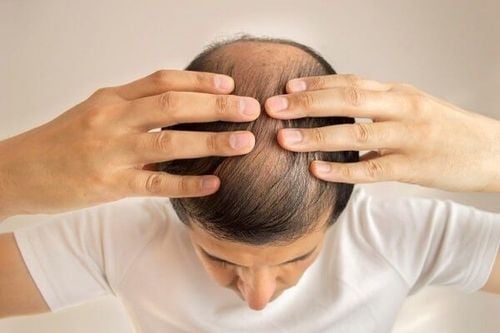
Giải đáp hormone dihydrotestosterone là gì?
3. What are the harmful effects of low dihydrotestosterone levels?
Low levels of dihydrotestosterone in the body can also affect the growth rate of the body during puberty in boys.
Specifically, low dihydrotestosterone can cause genital retardation, gynecomastia, increased risk of prostate tumors, and uneven distribution of body fat.
In the fetus, the lack of 5-alpha-reductase enzyme causes DHT deficiency, which interferes with the formation of the fetal external genitalia. This resulted in the birth of children with female-like external genitalia, an abnormally small penis, and an opening of the urethral opening on the underside of the penis. These boys are often raised like girls.
4. Overcoming hair loss caused by dihydrotestosterone (DHT)
Preventing hair loss has many different methods, the common point of these methods is that they all work based on 1 of 2 mechanisms: preventing DHT from binding to 5-AR receptors or inhibiting DHT production. in the body.
Finasteride: Finasteride is a prescription medication that prevents DHT from binding to 5-AR receptors to prevent hair loss. However, the drug can cause some side effects if not used correctly, so you should only use it as prescribed by your doctor. Minoxidil: Minoxidil is a vasodilator that makes it easier for blood to flow to the hair follicles to stimulate hair growth. Minoxidil is sold without a prescription, so it can be bought easily at pharmacies, it is also sold in many different forms such as spray, serum, oral, topical. Biotin: Biotin, also known as vitamin H, is a natural form of the body's vitamin that works to maintain and increase keratin levels in hair, nails and skin. Many studies have shown its effect in stimulating hair growth and limiting hair loss. Biotin can be supplemented through functional foods or foods such as cereals, egg yolks. Vitamins B12 and B6: Deficiencies of B vitamins, especially vitamins B6 and B12 can cause hair loss. Supplementing with vitamins B6 and B12 can help replenish nutrients that nourish hair follicles, making hair stronger. Baldness caused by dihydrotestosterone not only affects aesthetics but also is a sign of DHT disorder in the body. Therefore, you should supplement the necessary substances and nutrients through the diet to limit the improvement of the above condition.
Please dial HOTLINE for more information or register for an appointment HERE. Download MyVinmec app to make appointments faster and to manage your bookings easily.




